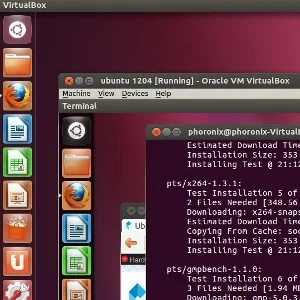Cloud Hypervisor 28 Released As The Project's First LTS Version

The Cloud Hypervisor VMM continues to be focused on running "modern cloud workloads" across Windows and Linux guests while retaining a minimal footprint and making use of Rust as part of its security guarantees. With Thursday's Cloud Hypervisor 28 release, it's the first time they are having a Long term Support (LTS) release.
Cloud Hypervisor LTS releases are intended to be maintained for 18 months and with the intention of supporting live migration and live upgrades between LTS point releases. Cloud Hypervisor is reaching a nice maturity point and industry adoption that the developers feel comfortable now to support declared LTS versions for year and a half increments.
In addition to christening Cloud Hypervisor LTS, the Cloud Hypervisor 28 introduces virtualized TPM support, transparent huge page (THP) support, documentation improvements, and various bug fixes.
Among the bug fixes is now supporting more than 31 vCPUs on AArch64, fixing copy-on-write handling for pinned pages to avoid high memory use, VirtIO device bug fixes, support for QCOW files larger than 4 TiB, and other fixes. Putting Cloud Hypervisor 28 together were engineers from Microsoft, Intel, Arm, Tencent, and ZTE.
Downloads and more details on Cloud Hypervisor 28 LTS via GitHub.
7 Comments

